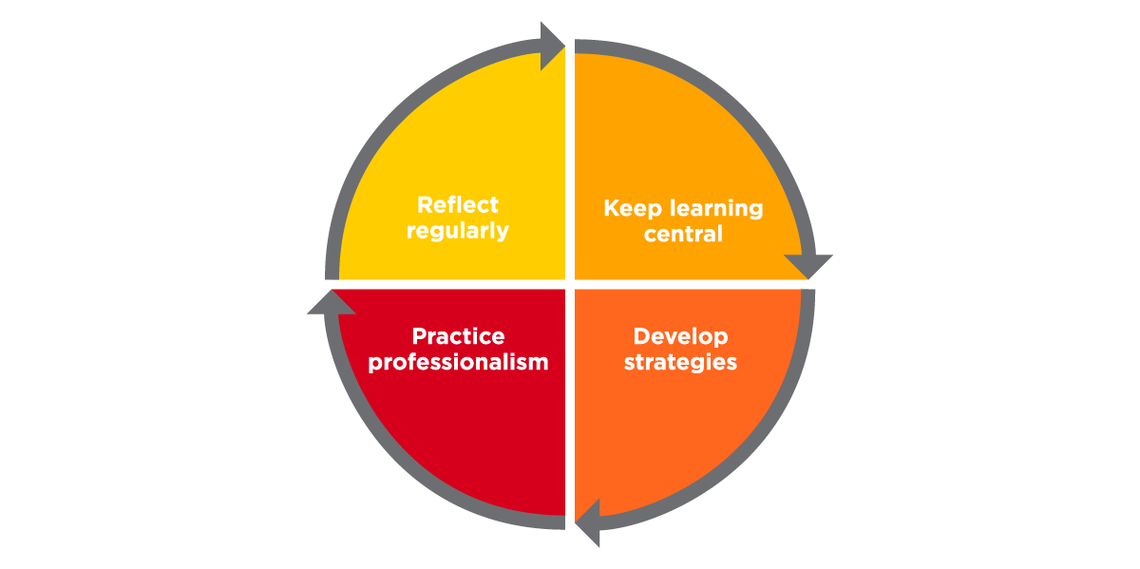
Lesson 1: Introduction
Teaching assistants are important!
Research clearly shows that teaching assistants have a significant impact on the learning experiences of undergraduate students (Bettinger et al., 2016). Graduate Assistants Teaching (GATs) are often the first line of contact for students, and you play an essential role in supporting both students and the instructor of record.

Whether you lead a lab, teach a seminar, support large lectures, engage with online discussion boards, or grade assignments, you will have opportunities to meaningfullysupport student learning. While there tend to be disciplinary or departmental norms about the roles of teaching assistants, we know that GATs across the University of Calgary support learning in a wide variety of ways.
Graduate Student Teaching Development Framework

Adapted from the Teaching Assistant and Graduate Student Advancement (TAGSA) Canada.
In each of the following lessons, we will introduce you to one principle of the adapted Framework for Graduate Student Teaching Development:
- Reflect regularly
- Keep learning central
- Develop strategies
- Practice professionalism
You will notice that although the quadrants are represented as separate topics, they are part of a holistic cycle of learning that has no clear starting or finishing points. Our hope is that you will continue to develop each aspect of your teaching skills throughout your teaching assistant career.
Get started by getting connected
Teaching is inherently complex work and having a community of support will be invaluable to your own development and to your ability to support your students’ learning.
Confirm responsibilities
If you haven’t already done so, connect with your instructor of record to discuss what your specific roles and responsibilities will be.
Connect with peers
If there are other teaching assistants assigned to your course, connect with them as well to start forming a community of learners.
Find a mentor
Even if you are the only teaching assistant assigned to your course, ask your instructor of record how you can connect with other teaching assistants in your department/faculty. It is especially helpful to find a more experienced teaching assistant who can serve as an informal mentor through the term.
Be a mentor
If you are an experienced teaching assistant, consider connecting with a novice teaching assistant to support them in their teaching and learning journey.
Get involved
Consider getting involved with campus-wide graduate student activities. You will meet people from other disciplines and departments, many of whom are also GATs. You can learn a lot by talking about your teaching roles and experiences with people teaching in different contexts.
Additional resources
The Graduate Student Teaching Development Guide is designed to empower GATs to engage in their role in ways that enhance their teaching and learning capacities, and promote student learning.
This documentation ensures that graduate students on campus are afforded fair treatment with regards to their time as teaching assistants on campus – their hours, their place and style of work, the workload they are asked to contend with, and the resources at their disposal.
Lesson checklist
- Make a plan to connect with your instructor and peers
- Become familiar with the adapted Framework for Graduate Student Teaching Development
References
Bettinger, E.P., Long, B.T., Taylor, E.S. (2016). When inputs are outputs: The case of graduate student instructors. Economics of Education Review (52), 63-76. http://dx.doi.org/10.1016/j.econedurev.2016.01.005



